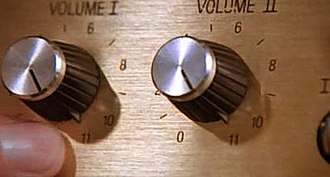As a quick aside... So within five minutes of me getting my copy of Burning Wheel, Revised Gold Edition, my one year old son grabbed it, smiled as he held the book, and then ground this magnificent book across our cement front porch. Yeah, it has a cover on it now. I even put ribbons in it! Yeah, the design's kinda dinky, but I love it cause it's so ugly.
 | ||
| My copy of Burning Wheel Revised Gold | . |
"Burning Wheel is the Dark Souls of RPGs"- Jonathan Ying
There was a moment, right at the beginning of me getting to know this game, where I realized that I had no idea what the hell I was doing. The rules were so antithetical to Dungeons and Dragons, which was really hard for me to accept. I'd only known DnD and it hurt the brain a bit to jump. I was getting discouraged and wondering if I should just give up and move onto something simpler. I didn't breathe a word of this to anyone at the time, but after utterly screwing up the first campaign and then rebooting the second I was about ready to just hang it up. And then we did the first Trait Vote, which is where all the players discuss the story and the characters and decide where they want to go from there. And everyone just sat there with this blank look on their faces. They'd never had this amount of control before. They'd never had to think about their characters the way the game was demanding them to think! I watched, entranced, as they dug deep into their guts and made awesome decisions about who their characters and what they wanted out of the story and they connected and they cared and couldn't wait to see how it would all shake out and they were excited and they had opinions and... and...
I almost cried for joy when I went home. And then I picked up my lovely, practically new and totally-not-scratched-because-I-didn't-have-kids Burning Wheel core book, smiled, and went back to reading. It
Burning Wheel is... Burning Wheel is... yeah, I've been playing for years and I still couldn't finish that sentence, not really. I've no idea why. In fact, until Mr. Ying (probably jokingly) called Burning Wheel the Dark Souls of RPGs I doubt I would have found a phrase that so accurately summed my experience of Burning Wheel. Burning Wheel is entirely about character development, in a way that is so uncompromising that it, indeed reminds me of Dark Souls. Most people who have only really played DnD may roll their eyes at that statement, because of course there's character development in their games! Characters develop all the time! This is a fair point, so let me illustrate my point with a few anecdotes of characters that illustrate my point the best.
In one of my games there was a character by the name of Joel. He was a common criminal and refugee, trying to get his hands on papers that would make him a native of the city he needed to stay in to stay alive. He was told he needed to grab a young woman to put into a compromising situation that would bring down the Lord Mayor of the town. This he did, not really asking any questions as to what would happen to said woman. Unfortunately the plan went awry and the woman was eaten alive by a lich, in front of Joel, who was paralyzed by fear. The lich licked his lips, thanked Joel for the tasty snack, and walked off to take over the town, which was already in the middle of a massive riot. In despair Joel ran away, only to find himself underneath the town and handed a holy sword by the Archangel Raphael, who told him that he was the only one who could save the city. Joel protested; he was not that guy. He was a coward, a common criminal! Raphael told Joel that there was much more to him than he knew. And Joel was then left alone with the sword. Joel desperately charged the lich who was destroying the town, all caution to the wind. He almost died in the attempt (which may have been the point, the GM doesn't know!), but did manage to kill the lich. Joel wanted to put the sword down and fade into obscurity, but an ancient evil had been reawakened during the riot that Joel had helped start and the sword responded to no one else. So Joel took on threat after threat, each deed more epic than the last. He was regarded as the hero of the city and the townsfolk worshiped the ground he walked on. He was accepted by all except himself, because he was the only one who remembered what he truly had been.
Xellous was a 13 year old enchanting prodigy, raw but with a lot of potential. One day he met a demonic boy called a Flammeous Lad. The encounter revealed a massive alien conspiracy to destroy the world, and in trying to save his wife's brother lost his wife to said aliens. The reclusive enchanter is now the chosen knight of a dead star, not to mention one of the most trusted bodyguards of the king, and the inventor of his own magical system to boot. All to get his wife back.
Every single action described in the above two paragraphs came from mechanics. It wasn't decided by the GM, nor the player, but was a result of us playing the rules of the game and getting story outputs. There were a grand total of three combat rolls in Joel's initial adventure. Not combat encounters, but combat rolls. Xellous probably rolled a dozen combat rolls in as many sessions Mechanics are attached to everything: Steel rolls for fear, surprise, and injury, a host of 400+ skills for every facet of the fantasy medieval life you can imagine, and a robust rolling system that tracks almost each roll you make. It is a lot, overwhelmingly so at times, but it all centers around the Beliefs, Instincts, and Traits of the character, labeled BITs. BITs are the central core of the character, and are as simple as they are deep.
 |
| Historical in-game footage of a GM forcing a player to face the consequences of their Beliefs. |
| Historical in-game footage of a player having to face the consequences of their Instincts. |
And finally there's Traits, which are the passive things about your character that matter. There are three different types of Traits: Character Traits (CTs), which are personality things about your character that you embody to the point of almost caricature, Dice Traits (DTs) which let you break the rules of the game in differing ways, and then Call-On Traits (C-Os), which either let you break a tie in your favor or reroll all your failures, all in relation to a single skill. There's not a lot of rewards for this particular part of the BITs, except for Character Traits, and only if you cause trouble or an unexpected twist with them.
So what are these rewards? They're called Artha, and come in three varieties: Fate, Persona, and Deeds. Fate is given out usually for following your BITs to their logical extreme and Persona for ignoring your BITs or playing them really well. Deeds are the most powerful artha in the game and by far the rarest, only given out for powerfully changing the setting in a way that goes beyond or horrifically contradicts your BITs. If you spend enough artha on a specific skill it becomes mechanically better than other skills, allowing you to greatly increase your effectiveness in that skill. It's a slow burn that rarely happens in any campaign, but when it does? It is remembered. It was deserved, richly.
 |
| *GULP* |
There are a lot of supplemental systems that Burning Wheel has, three for extended conflict mechanics.This is probably where Burning Wheel gets the most undeserved ribbing. The three in the book are Duel of Wits (arguing), Fight! (melee combat) and Range and Cover (skirmishes and ranged combat). The core of these systems is an often-terrifying rock-paper-scissors-Spock... on steroids. These systems take the finickiness of the dice rolling system and amp them all the way to 11. I've never seen a lukewarm reaction to them; you either love them or hate them. If you love them it's because the tactics are just your kind, and if you hate them it's because you never would love something like it. I'm on session 14 of a campaign where these extended conflicts have never been used and the game goes just as well as it does for me when they are. I don't know if they'll come up at all in this game and I'm fine with it. They are truly optional, no matter what the naysayers are baying at this particular moment in their little hater hovels.
This game is not for everyone. Period. It is demanding, more than a bit finicky, and there are moments where you wonder if you're losing your mind. But there's these incredible moments of transcendence, where the rules drop away and you realize that the rules are, to quote the designer Luke Crane "a ramp", not a cage, and you are flying high in the sky and you're falling and you have no idea what will happen when you hit the ground but dear God, you are ready, cause you are the storm. And those moments are the ones I live for in my games.
If any of this makes sense, any of it, get the game. You will not regret it.



No comments:
Post a Comment